Adopting a rescue dog can be one of the most rewarding experiences in life.
But do dogs truly understand that they have been adopted?
This is an intriguing question and one that many pet parents have debated for years.
As someone who has adopted three dogs, I will share my experience with you.
- Do Dogs Understand They’re Being Adopted?
- Are Dogs Sad When They Get Adopted?
- Do Adopted Dogs Miss Their Previous Owners?
- What is Semantic Memory in Dogs?
- What is Episodic Memory in Dogs?
- What is Associative Memory in Dogs?
- Is It Cruel To Rehome a Dog?
- Do Dogs Remember They Were Rescued?
- Do Rescue Dogs Know They Are Loved?
- Do Rescue Dogs Miss Their Old Owners?
- How Do Dogs Feel When You Rehome Them?
- How Long Do Dogs Miss Their Old Owners?
- Do Dogs Know When They Are Being Helped?
- How Does a Dog Choose Its Owner?
- How Long Does It Take For a Rescue Dog To Bond With The New Owner?
- Should You Change a Rescue Dog’s Name?
- What Are The Signs of a Traumatized Dog?
- Do Dogs Feel Sad If You Give Them Away?
- How Traumatic Is It For a Dog To Change Owners?
- How Long Is a Dog’s Memory?
- What Is The Rule of 3 For Rescue Dogs?
- What Do Dogs Think When They Are Lost?
- Do Dogs Think About Us When We’re Gone?
- Do Dogs Think Of Us As Parents?
- Do Rescue Dogs Love You More?
- In Conclusion
Do Dogs Understand They’re Being Adopted?
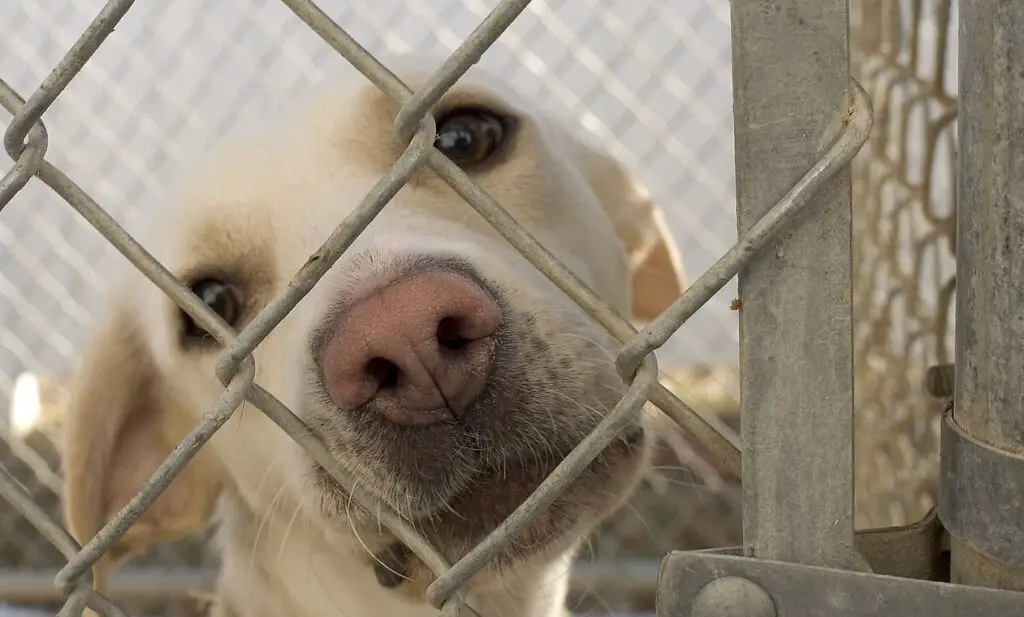
Dogs may not comprehend the concept of adoption as humans do, but they can sense changes in their environment and routine, and respond positively to love, care, and stability provided by their new family.
Most dog owners will tell you their adopted pup has an understanding of being part of the family.
Dogs tend to form strong bonds with new families quickly. But, it’s impossible to tell if a pup truly understands or just assumes this new environment as home.
Many dogs may feel adopted, particularly if their previous owner couldn’t care for them anymore prior to adoption.
They may witness the love and attention from their new parents as a special treat reserved only for members of their family.
Unfortunately, many dogs may not be aware that they’ve been adopted and mistakenly believe the home to be their own.
Since dogs don’t fully comprehend the concept of adoption as humans do, it may take some time before they fully appreciate having a permanent home with loving owners.
Are Dogs Sad When They Get Adopted?
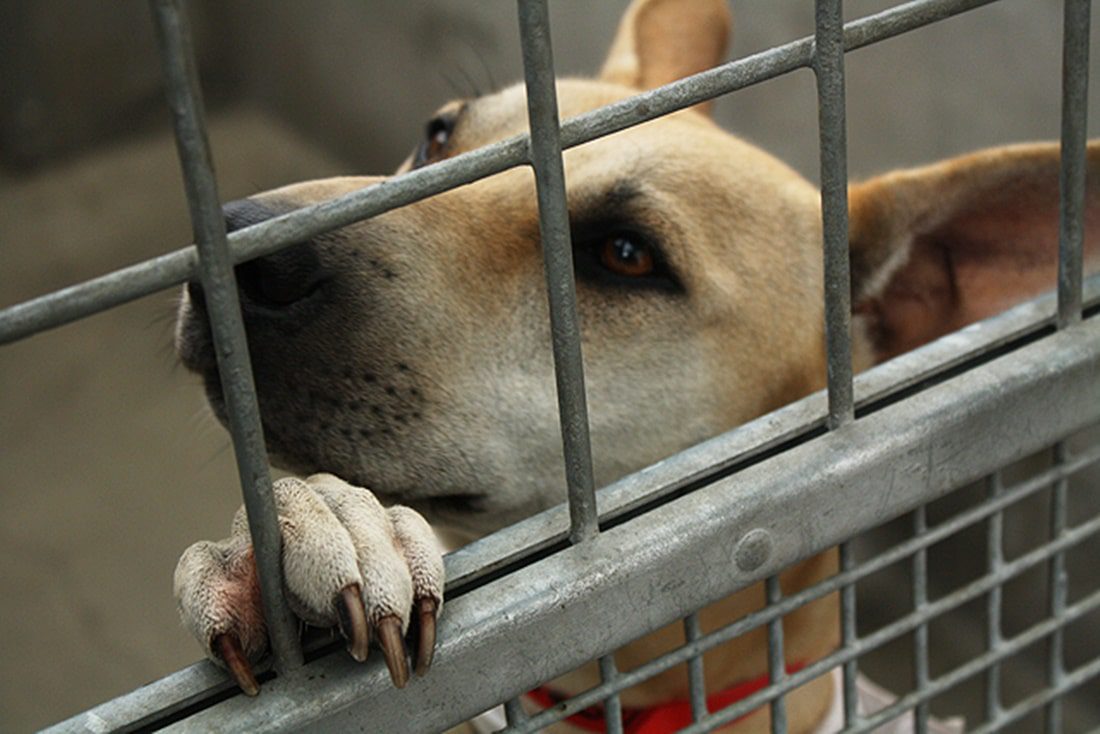
Dogs might be sad when they get adopted simply to the fact that they might miss their old owner. It might have nothing to do with you, they probably didn’t get over their old owner yet.
However, every dog reacts differently when adopted and the circumstances surrounding their adoption can play a significant role in how they feel.
Some dogs may be thrilled and grateful for the chance at finding a new home, while others experience sadness or anxiety due to leaving behind familiar people or environments.
It’s also essential to remember that puppies have different needs than adult dogs, making it more likely for them to experience fear or confusion about being adopted.
No matter the age of your pup when you adopt them, it’s essential to give them time and space to adjust to life with you.
Show lots of love, patience, and consistency. It may take a few weeks or months but eventually, they will recognize you as their new family and learn to trust and depend on you.
With lots of patience and love your adopted pup can go from being sad to becoming an amazing companion!
Do Adopted Dogs Miss Their Previous Owners?
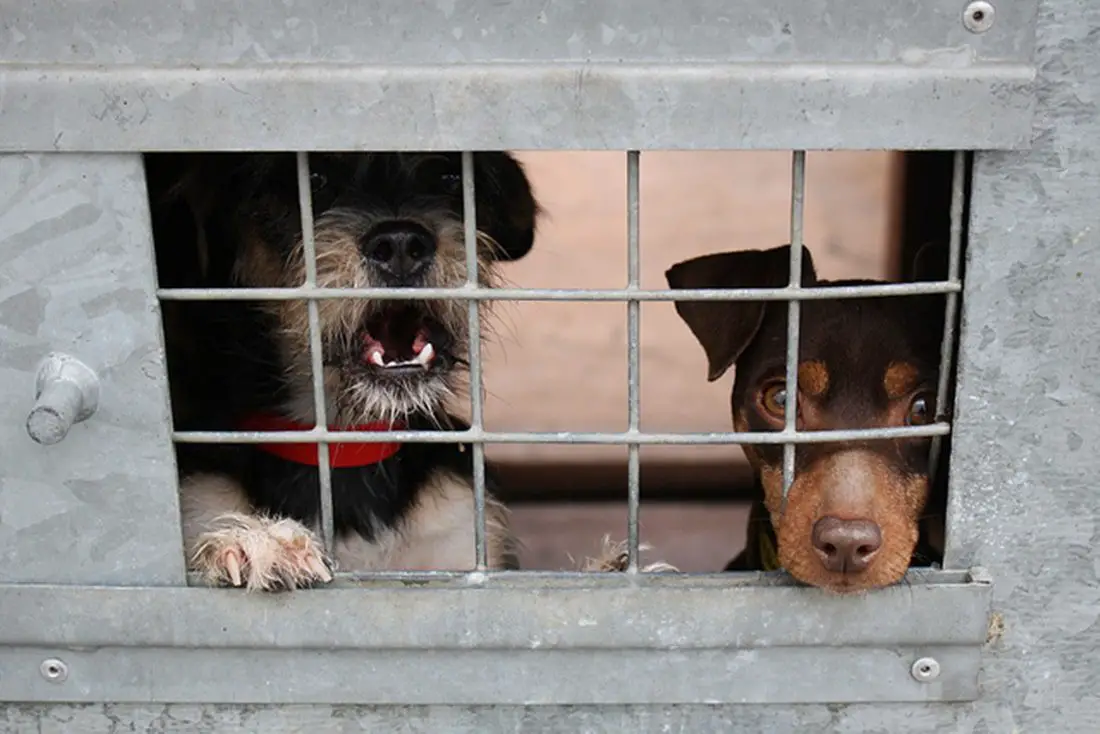
Adopted dogs will miss their previous owners if they had a good time. If they were abused, they would probably not miss their old owner.
Adopted dogs often miss their home and familiar people, even if it is a difficult living situation.
Dogs are social creatures and form strong attachments to humans; when those relationships end it can be heartbreaking for them.
While some adopted pups adjust quickly to their new homes and owners, others may need time to warm up.
If you notice your newly adopted pup feeling sad or anxious, try spending extra time with them providing comfort and assurance until they begin feeling secure in their new environment.
However, remember not to put too much pressure on yourself – be patient and consistent in your efforts!
What is Semantic Memory in Dogs?
Semantic memory in dogs refers to the capacity for forming and storing memories of word meanings, faces, and ideas.
It’s one of the four primary types of explicit memory in canines along with episodic, procedural, and autobiographical memories.
Semantic memory allows dogs to recall words’ meanings, as well as general information about their environment, such as which animals are dangerous and which ones aren’t.
Memory allows dogs to recognize objects or situations they’ve seen before, making it useful when teaching new tricks or behaviors.
By understanding the fundamental principles behind a particular command, dogs will be better able to comprehend and apply the instructions given to them says PetFinder.
What is Episodic Memory in Dogs?
Episodic memory also referred to as autobiographical memory or personal episodic memory is the recall of specific events experienced by an individual.
This form of declarative memory involves conscious recollection of facts that can be affected by emotions.
In humans, episodic memories are believed to originate in the hippocampus and other regions of the brain.
Research in dogs suggests episodic memory may exist, though much more research needs to be done to fully understand its nature.
Dogs have been observed remembering experiences from weeks earlier, such as people they’ve seen before and routes taken on walks with their owners.
Furthermore, it has been shown that dogs remember how long certain tasks take them to complete (like fetching a toy or finding food in a maze) and can recall these memories afterward.
Overall, it appears that dogs possess some degree of episodic memory; however, further investigation is necessary to determine its full extent.
While we cannot definitively say if dogs remember their owners, what we do know is they are capable of recalling experiences from the past.
This means when you leave your pup alone for some time and then return, they may recognize you and greet you enthusiastically when reunited.
Furthermore, studies have suggested dogs can form emotional connections with their owners which could explain why they show such excitement upon reunion after being apart.
What is Associative Memory in Dogs?
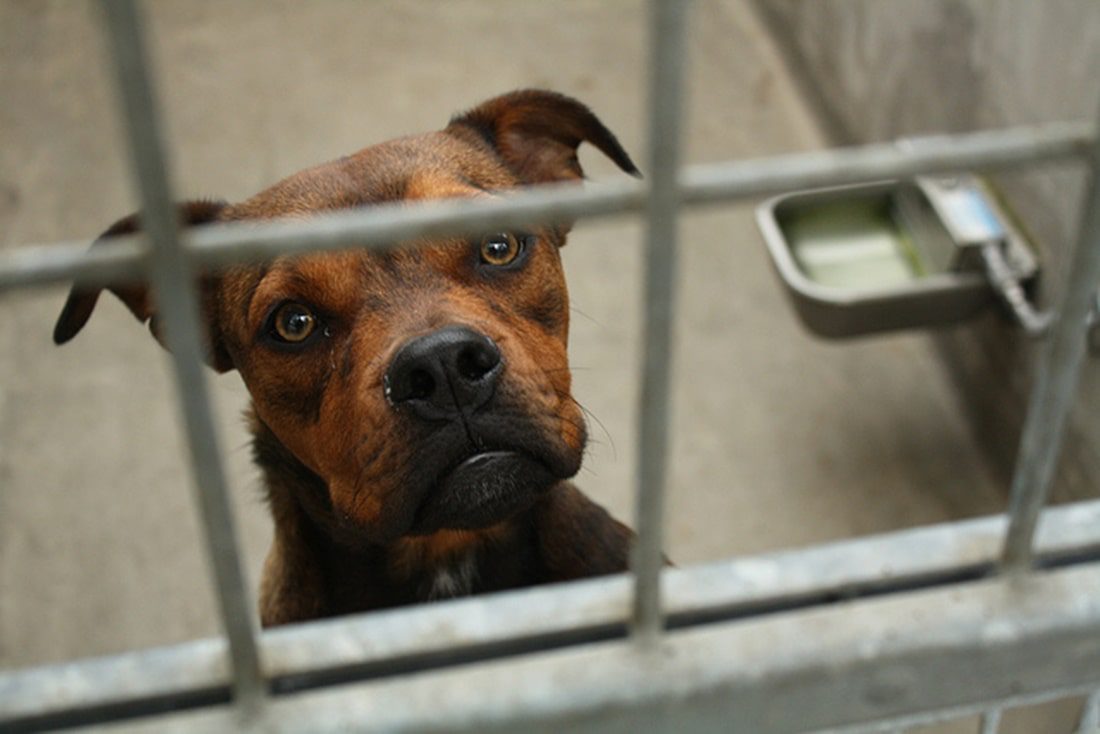
Dogs possess associative memory, which allows them to recall information about people, places, and events with ease.
Additionally, they may recognize familiar sights and smells that remind them of past interactions with their owner.
Dogs form strong attachments to humans, making it easier for them to remember us in the long run.
Dogs reportedly use information from our facial expressions and body language to construct an image in their mind of who we are; verbal praise or punishment also helps reinforce this image.
As our canine friend’s age, they may start to forget some details about their owners. This is perfectly normal and doesn’t indicate that the dog has forgotten us completely.
Rather, it’s likely that they remember the overall feeling of being with us even if they can’t recall specific details says Peta Kids.
Is It Cruel To Rehome a Dog?
It is not cruel to rehome a dog if it’s going to a better place than before. At first, the dog might not understand that, but with time it will learn that he is now in a better place.
Rehoming a dog should never be taken lightly, and it’s essential to remember that owners typically make this decision with their pet’s best interests in mind.
Before considering rehoming a pup, owners should explore all available alternatives (like seeking professional help or training) before opting for a permanent solution like rehoming.
Rehoming can be an incredibly kind act that provides a better home for pets who may have otherwise gone neglected or mistreated.
The key is finding an appropriate new residence and making sure all of the dog’s needs are met – such as providing a secure area and verifying the new owners are capable of providing adequate care.
Furthermore, creating a plan for regular check-ins or visits from their former owner helps guarantee these needs are met says Purina.
Do Dogs Remember They Were Rescued?
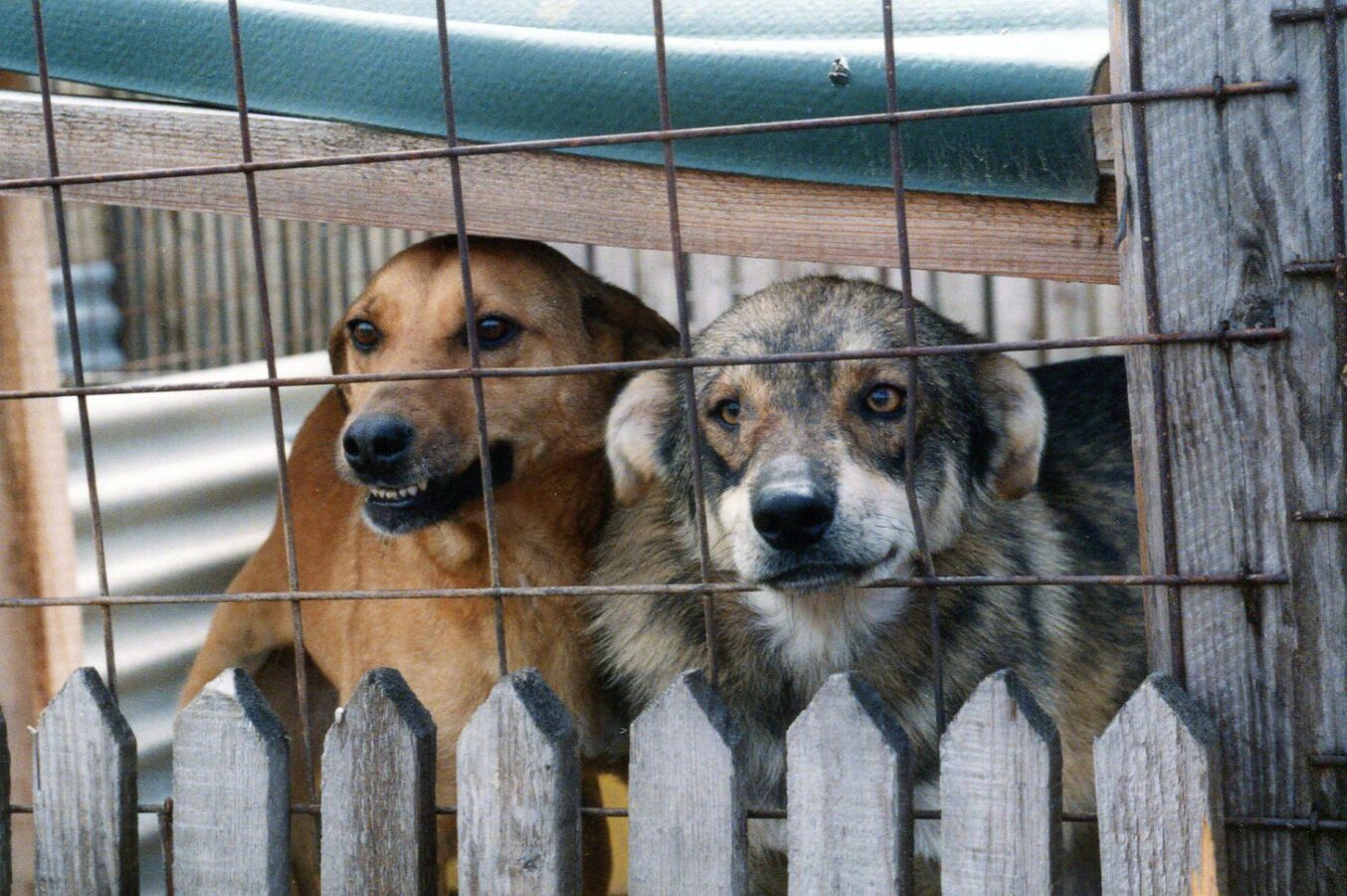
It is really an individual thing where some dogs might remember they were rescued, while others will forget.
Some dogs may form a strong bond with their rescuer, while others may not remember anything of it at all.
Much like humans, some canines possess an incredible capacity for emotional connection and appreciation while others are less verbal.
Dogs also exhibit different ways of showing they remember being rescued.
A canine who remembers their rescuer might follow them around the house, get overly excited when they return from work, or even bring presents for the human to enjoy.
While these behaviors may be indicative of a dog remembering its experience with rescue, it is essential to remember that every case is unique says Dog Trust.
Do Rescue Dogs Know They Are Loved?
Absolutely! Rescue dogs often show an incredible amount of gratitude, appreciation, and love toward their caretakers.
They are fiercely loyal creatures who form strong bonds with those who provide them with food, shelter, and affection as per ASPCA.
Most rescue dogs express this affection through cuddling, following you around the house, playing fetch or tug-of-war, and giving lots of kisses on your lap when relaxing in a chair or on the couch – it’s truly beautiful to witness!
Make sure that your rescue pup receives plenty of love in return – give him/her plenty of attention today!
Do Rescue Dogs Miss Their Old Owners?
When it comes to rescuing dogs, the answer depends on each individual. Some may still have strong emotional connections with their former owners while others have moved on and formed new attachments.
There is no single answer as each dog’s journey will be unique.
In general, however, it is essential to remember that rescue dogs require extra love and care in order to heal from any trauma they may have endured before entering a new home.
Showing your pup plenty of affection, exercise, and mental stimulation will help them adjust more quickly and form an attachment with you as their new owner.
Furthermore, providing safety cues such as toys or blankets with familiar scents can be immensely helpful too.
Finally, it is essential to remember that each dog is an individual and may react differently in their new home says RD.
How Do Dogs Feel When You Rehome Them?
The feeling of rehoming a dog depends on the circumstances surrounding their move, but usually dogs experience anxiety and even fear when uprooted from familiar surroundings.
They may miss their original owners and struggle with adjusting to life in a new home with unfamiliar people and routines.
To help ease this transition, it’s essential that you introduce them slowly to their new environment, offer lots of love and assurance, and exercise patience as they become more settled in.
With enough effort put in by all parties involved, most dogs will eventually settle happily into their new lives!
How Long Do Dogs Miss Their Old Owners?
On average, dogs take anywhere from weeks to months to adjust to a new home and family. When it comes to missing their former owners, the timeframe can vary significantly.
If there was an especially strong bond with their previous owners, this adjustment could take even longer.
It’s essential that you provide them with plenty of comforting love during this transition period.
With patience and understanding, most dogs eventually form strong attachments with new families and overcome any initial feelings of sadness or loss associated with leaving their previous homes.
Do Dogs Know When They Are Being Helped?
Many people believe dogs possess some intelligence and research has demonstrated that dogs are capable of recognizing when someone is trying to help them and may even show gratitude.
In one study, scientists observed how dogs interacted with their owners when given tasks too difficult for them to complete on their own.
While some simply ignored the help, others showed increased interest in the person helping them, wagging their tails and licking them gratefully as if saying “thank you”!
Research suggests that dogs not only comprehend when we attempt to help them, but they may even feel grateful for our assistance.
This could explain why so many pet parents vouch for the unconditional love and loyalty of their beloved canines.
For centuries, dogs and humans have shared an intense bond. But it appears that those feelings go both ways.
How Does a Dog Choose Its Owner?
Dogs are loyal and often make decisions based on how they feel about their owners.
Factors such as the interaction between the two of them, body language, vocalizations, and even scent may all play a role in helping determine whether a particular individual is suitable for them.
Dogs tend to be particularly attracted to people who take an active interest in them and strive to demonstrate love and affection.
Once a pup has chosen its owner, the two usually form an intense bond that can last years. It’s essential to note that dogs often make this choice without thinking it through.
Just as humans form connections more easily with certain people than others, dogs also pick up on subtle cues from potential owners that indicate which one would make a good match.
Ultimately, a dog’s decision of whom they will spend their life with reflects both their personal preferences and the bond formed between them and their chosen owner.
How Long Does It Take For a Rescue Dog To Bond With The New Owner?
Adopting a rescue dog can take anywhere from weeks to months for them to bond with their new owner.
During this period, your pup will adjust to its new environment and begin building a relationship with you as its new parent.
As transition times for rescue dogs vary from individual to individual, it’s essential that you give them plenty of time and patience during this critical stage.
For a strong bond to form between a dog and its owner, it is essential that they spend quality time together.
Regular walks, playing games, and consistent training all help move this process along.
Furthermore, making sure they have enough food, water, exercise, and attention will foster trust between you two.
Should You Change a Rescue Dog’s Name?
When it comes to changing the rescue dog’s name, the choice is yours. Many people opt to keep their rescue pup’s original name as a way of honoring the animal’s past and commemorating their bond.
On the other hand, some new pet parents may opt for changing the name as an opportunity to start fresh and foster an even stronger connection between them.
It is essential that any name change be done gradually and with positive reinforcement.
Begin by introducing your rescue dog’s new name via treats, rewards, or verbal praise each time you use it.
Over time your pup will begin associating the name with something positive which makes the transition smoother for both of you.
What Are The Signs of a Traumatized Dog?
Traumatized dogs often exhibit signs of emotional distress, such as excessive fear or aggression.
Signs may include cowering, trembling, hiding, or avoiding people and other animals; barking excessively, or becoming destructive when left alone.
Other indicators may include changes in eating habits or toileting issues as well as withdrawal from activities they used to enjoy.
In severe cases, they may develop compulsive behaviors they are unable to control such as spinning or tail chasing.
If you believe your pup is showing any signs of trauma it’s important to seek professional help from either a veterinarian or certified animal behaviorist for further evaluation and treatment options.
Do Dogs Feel Sad If You Give Them Away?
Yes, dogs can feel sad if their owners give them away. Dogs form strong attachments to their owners and may experience feelings of abandonment or loss when given away.
It is essential to recognize that all pets have individual personalities and needs, so the way they respond to a change in environment can differ significantly.
In some instances, dogs may become depressed or anxious after being given away and require special care or support from their new owner.
If you are planning to give away your pet, make sure the new home will provide them with all of the love and affection necessary for a smooth transition.
Furthermore, spend time with your furry friend during this period so both of you can adjust slowly but positively together.
How Traumatic Is It For a Dog To Change Owners?
Change of ownership for a dog can be extremely distressing. It is essential to recognize that dogs form strong attachments with their owners, and are often disoriented when moved into a new home or with another individual.
This may result in confusion, anxiety, fear, and other behavioral problems.
To help your pup adjust to their new environment and family members gradually, start by showing them affection and providing plenty of positive reinforcement for good behaviors.
Establish basic rules and structure right away so they know what you expect of them in terms of behavior.
With patience, consistency, understanding, and respect you will help your pup adjust seamlessly to his forever home!
How Long Is a Dog’s Memory?
Research has generally demonstrated that dogs possess an average memory span of 2-3 months. This means they can typically recall events within the past few months with some accuracy.
With training and practice, however, many dogs can further hone their memory skills.
In addition to dogs’ relatively short-term memory span, it’s essential to note that they do not store memories the same way humans do.
Studies have revealed that while humans usually remember facts and events, dogs often recall emotions associated with certain occasions.
This means a dog may remember someone’s scent or behavior in relation to an event much more vividly than the actual details of that same event itself.
Research has demonstrated that while a dog’s memory may be shorter than a human’s, it still plays an integral role in their daily lives.
With training and practice, many dogs can increase their memory capacity which benefits both owners and the animals themselves.
By understanding how your pup stores memories, you will gain a better insight into them and ensure they receive the best care possible.
What Is The Rule of 3 For Rescue Dogs?
The rule of three for rescue dogs is a guideline that suggests potential adopters take the time to carefully consider three options before making their choice.
It’s essential to remember that every pup is an individual, so there is no one-size-fits-all solution when it comes to adoption.
Utilizing this number ensures your relationship with your new furry friend has the best chance at success and both parties experience joy from being together.
When selecting the ideal rescued puppy or dog for you, take into account their size, activity level, energy levels, trainability, health issues, age, and compatibility.
Doing your due diligence on each prospective canine companion will allow you to make an informed decision that benefits both of you.
What Do Dogs Think When They Are Lost?
Dogs that have been separated from their owners and become lost can experience a range of emotions, from confusion to fear.
Depending on the individual personality of the pup, some may feel overwhelmed in unfamiliar surroundings and attempt to seek out familiar scents or sounds in order to locate home.
Others may be more adventurous and take advantage of exploring new areas but remain anxious about not knowing where they are or how to get back home.
As dogs rely heavily on their sense of smell when trying to locate their owners, it’s important for worried pet parents to leave an item behind (such as blankets or clothing) that will guide them back home safely.
Do Dogs Think About Us When We’re Gone?
Most experts believe that dogs do not consciously think about us when we are away, but rather draw from their past memories to remember us.
Dogs may exhibit certain behaviors, such as eagerly awaiting our return or showing more affection than usual upon reuniting with us; these could indicate that they have been thinking of us while we were gone.
It’s also possible that dogs may pick up on subtle cues from their environment (or people around them) when we are gone and interpret these to mean something related to our absence.
For instance, your pup might become distressed if you put on your coat or shoes before leaving the house.
While it is impossible to know exactly what goes through a dog’s mind when we are gone, chances are high that they do think of us in some way or another while we are gone.
Do Dogs Think Of Us As Parents?
Dogs are social creatures and they naturally form strong bonds with their owners. Some dogs may view you as a parent figure, while others just view you as part of the pack.
Ultimately, it depends on each pup’s individual personality and level of attachment to its human family.
Studies suggest that when dogs and owners form bonds, similar dynamics emerge within a household unit: for instance, loyalty or protectiveness towards one another may develop.
Dogs have also been known to exhibit behaviors associated with parental care: some will lick their humans’ faces as if they were puppies; some bring items from one room to another as if they are carrying gifts; and some even sleep next to their owners just like a pup would with its parent.
Ultimately, it’s impossible to definitively tell if a dog views its human companion as a parent figure without taking into account the unique dynamics between the two.
Do Rescue Dogs Love You More?
It is widely believed that rescue dogs are more loyal, loving, and appreciative of their second chance than other breeds of dogs.
While rescues may show greater gratitude for being given a second chance, many rescues may actually show more love to you because they understand not all humans care about them.
Furthermore, rescue dogs tend to be extra protective and watchful when it comes to protecting those around them; thus making them potentially lovelier than other dog breeds.
So yes, many rescue dogs may indeed show you more affection than other dog breeds do.
However, no dog is ever guaranteed to show the same level of love.
Each canine has its own personality traits and characteristics which will determine how much love they offer you.
What matters most is providing a secure environment where all rescue pups can feel secure and accepted regardless of breed or background.
FAQs
Q: How do dogs react to being adopted?
A: Dogs can react to being adopted in various ways, including excitement, confusion, or anxiety. It’s important for the new owner to be patient and understanding as the dog adjusts to its new home.
Q: What should I do to help my newly adopted dog feel comfortable?
A: Creating a consistent routine, providing a safe and comfortable environment, and offering plenty of love and patience are important ways to help a newly adopted dog feel comfortable in its new home.
Q: Is it normal for an adopted dog to exhibit certain behaviors?
A: Yes, it’s normal for an adopted dog to exhibit behaviors such as shyness, fear, or even separation anxiety initially. These behaviors can often be addressed with positive reinforcement training and patience.
Q: How long does it take for a dog to adjust to being adopted?
A: The time it takes for a dog to adjust to being adopted can vary depending on the dog’s personality, past experiences, and the new environment. Some dogs may adjust quickly, while others may take weeks or even months.
Q: What are some signs that a newly adopted dog is adjusting well?
A: Signs that a newly adopted dog is adjusting well may include increased playfulness, improved eating habits, relaxed body language, and a growing bond with its new owner.
Q: Should I introduce my newly adopted dog to other pets right away?
A: It’s important to introduce newly adopted dogs to other pets gradually and in a controlled manner. This allows them to acclimate to each other’s presence and reduces the likelihood of conflicts.
Q: How can I help my newly adopted dog feel secure and loved?
A: Providing a safe and comfortable environment, spending quality time together, offering positive reinforcement, and being patient and understanding are key ways to help your newly adopted dog feel secure and loved.
Q: What are some common challenges that come with adopting a dog?
A: Common challenges with adopting a dog may include behavior issues, adjusting to a new routine, unfamiliarity with the dog’s past experiences, and the potential need for additional training or socialization.
Q: Can I seek professional help in adjusting my newly adopted dog?
A: Yes, seeking assistance from a professional dog trainer or behaviorist can be beneficial in helping your newly adopted dog adjust and address any behavior or training concerns that may arise.
In Conclusion
Adopting three dogs made me realize that dogs do really understand when they are being adopted.
They will often show signs of anxiety and excitement for their new owner and a new chance at life.





Leave a Reply